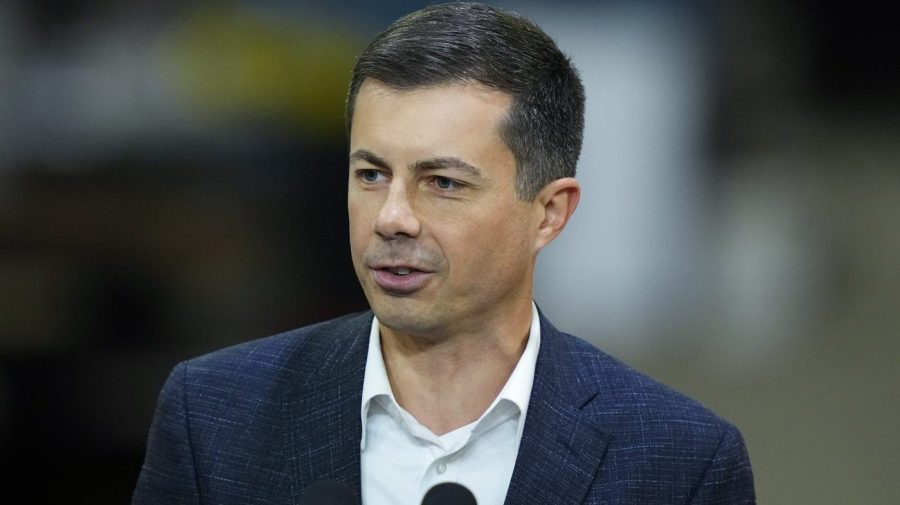
Transportation Secretary Pete Buttigieg made a subtle dig Wednesday at Supreme Court Justice Samuel Alito’s wife, Martha-Ann, after a secret recording revealed her denouncing the display of an LGBTQ Pride flag near her home.
Martha-Ann Alito told an undercover activist posing as a religious conservative at an event earlier this month that she wanted to fly a religious flag out of protest of a nearby Pride flag.
Buttigieg, the first openly gay Cabinet member, remarked in a CNN interview Wednesday that the court was the only reason he could marry his husband. Justice Alito ruled against legalizing gay marriage in the 5-4 decision in 2015.
“Look, I’m often reminded that the most important thing in my life, which is my marriage and my family and the two beautiful children that my husband Chasten and I are raising, that that marriage only exists by the grace of a single vote on the United States Supreme Court that expanded our rights and freedoms back in 2015 and made it possible for somebody like me to get married,” Buttigieg said.
He also urged the court to embrace ethics reform, as Alito is among the justices under scrutiny for potential political bias and accepting gifts.
“And, you know, Supreme Court justices have an unbelievable amount of power,” the secretary continued. “And by the nature and the structure of the Supreme Court, there’s no supervision over that power.”
“They are entrusted with it literally for as long as they live,” he continued. “And part of that trust is we expect them to enter into those enormously consequential decisions that shape our everyday lives with a sense of fairness.”
Justice Alito’s conversation with the undercover activist included him agreeing with her assertion that the U.S. should strive to be a Christian nation and his admission that much of the court’s business comes down to political ideology. Justice Roberts, by contrast, fought against her ideas in the pair’s own recorded conversation.
Lauren Windsor, the activist, told The Hill she felt “justified” to record those at the meeting surreptitiously because the court is “shrouded in secrecy, and they’re refusing to submit to any accountability in the face of overwhelming evidence of serious ethics breaches.”














